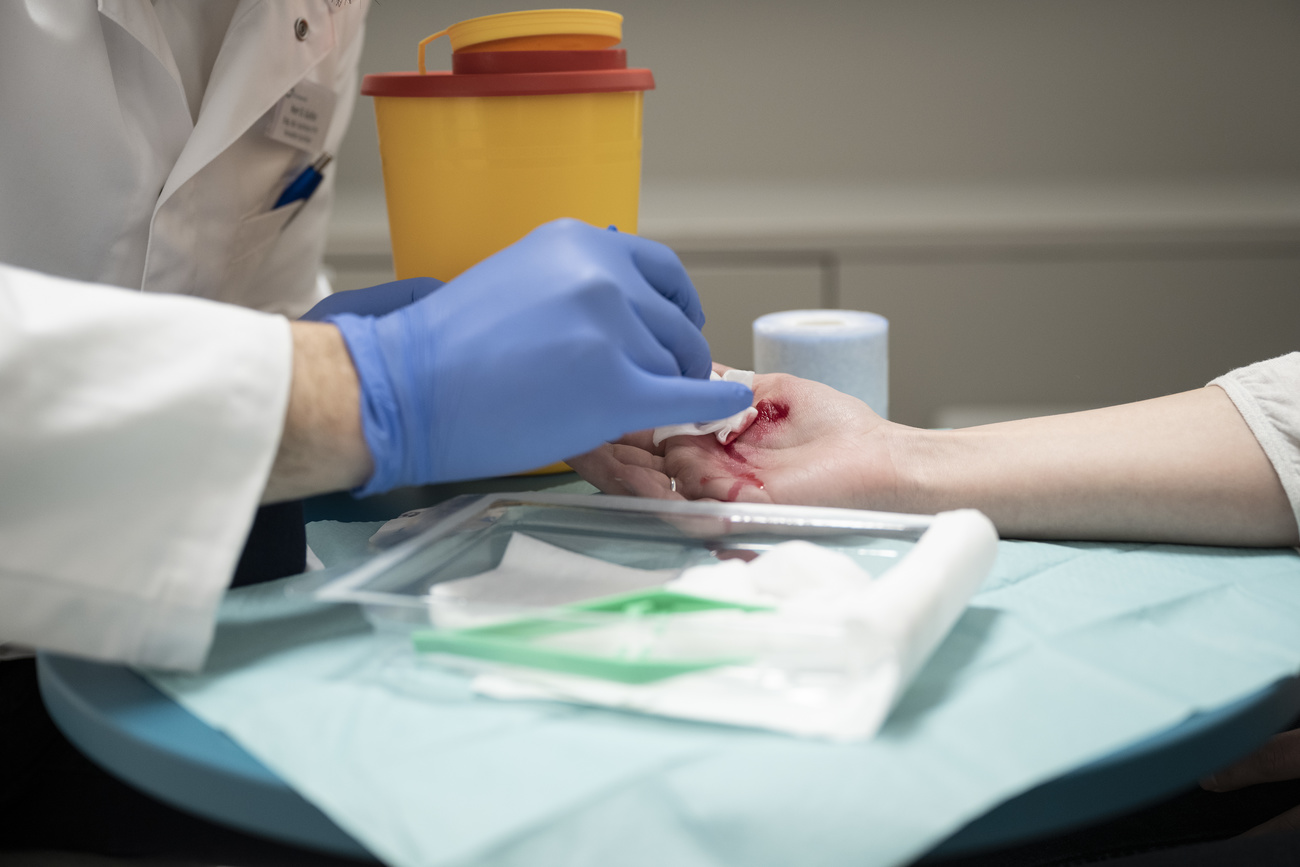
Swiss scientists develop method to solder rather than stitch wounds

The researchers have developed a mechanism which they say could help to prevent life-threatening complications caused by leaking sutures.
A research team from the Swiss Federal Laboratories for Materials Science and Technology (Empa) and the federal technology institute ETH Zurich has now applied for a patent for the process, Empa said on Tuesday.
In principle, soldering wounds using the new method works in the same way as soldering two metals: a solder is required which melts at a low temperature and can be used to bond the two parts together.
+ More research updates from Switzerland in our science coverage
In the case of metals, a metal mixture with copper is usually used. In this case, the researchers developed a protein gelatine paste that serves as a solder for soldering fabrics.
The paste contains two types of nanoparticles: firstly, so-called titanium nitride nanoparticles, which convert light into heat – when the paste is irradiated with a laser, it heats up. Secondly, bismuth vanadate particles, which act as a kind of thermometer; according to Empa, they emit light of a specific wavelength depending on the temperature and thus enable precise temperature control in real time.
In laboratory tests with various tissue samples – for example, on organs such as the pancreas or liver – the researchers achieved rapid, stable bonding of wounds. The sealing of tissue on the urethra, fallopian tube or intestine was equally successful. The results of the study were published in the journal Small Methods.
This news story has been written and carefully fact-checked by an external editorial team. At SWI swissinfo.ch we select the most relevant news for an international audience and use automatic translation tools such as DeepL to translate it into English. Providing you with automatically translated news gives us the time to write more in-depth articles. You can find them here.
If you want to know more about how we work, have a look here, and if you have feedback on this news story please write to english@swissinfo.ch.

In compliance with the JTI standards
More: SWI swissinfo.ch certified by the Journalism Trust Initiative



























You can find an overview of ongoing debates with our journalists here . Please join us!
If you want to start a conversation about a topic raised in this article or want to report factual errors, email us at english@swissinfo.ch.